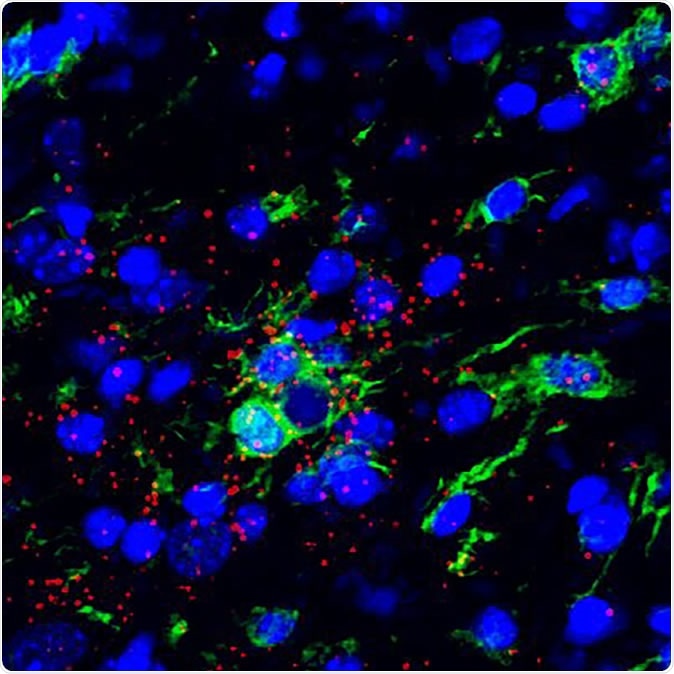The researchers looked at several genetic markers that could predict the worsening and progression of ALS. ALS is a progressive neurodegenerative disorder that slowly weakens the ability of the patient to move, speak, eat, or swallow and eventually leads to respiratory paralysis and death. This study was an attempt to look at the changes in the gene called TBK1 and its effects on ALS.
Their study revealed that mutations in the TBK1 gene can lead to both positive as well as negative effects on the progression of the disease in mice. These mice were genetically modified to mimic the symptoms of ALS.
Tom Maniatis, Ph.D., a principal investigator at Columbia's Mortimer B. Zuckerman Mind Brain Behavior Institute, a senior author, said, "One of the greatest challenges to finding a cure for ALS is using genetic data to understand the disease's underlying mechanisms." He added, "For example, neurodegenerative diseases such as ALS involve multiple cell types that are constantly changing as the disease progresses, so a drug that is beneficial in the early stages of the disease could detrimental at later times. Our study provides a glimpse into the complex relationship between ALS genetics and its mechanisms, and highlights the challenge in developing safe and effective drugs to treat the disease." He is also the Isidore S. Edelman Professor of Biochemistry at Columbia's Vagelos College of Physicians and Surgeons.

Representative confocal microscope image of the ventral horn of the spinal cord from an ALS mouse. Several microglial cells (green) infiltrate the spinal cord as ALS disease progresses. Single molecule FISH detected IRF7 (an interferon-inducible gene) RNA molecules (red) in microglia and other cells (Credit: Valeria Gerbino/Maniatis lab/Columbia’s Zuckerman Institute).
ALS and the TBK1 gene
ALS is a progressive neurodegenerative disorder that originates in the spinal cord and leads to the accumulation of an abnormal protein in the motor neuron. This abnormal misfolded protein often accumulates in the nerve cells of the motor neurons, and this can affect the movements.
The researchers explain that TBK1 is one of the 25 genes that are associated with the proteins associated with ALS. Here TBK1 they write has a role in cellular functions, including autophagy. Autophagy is a process by which the abnormal proteins, as well as damaged cells and bacteria, are removed. TBK1 can also help develop a response to bacterial and viral infections by releasing interferons.
Valeria Gerbino, Ph.D., an associate research scientist in the Maniatis lab and lead author of the paper, said, "TBK1 helps cells clear away clumps of misfolded proteins and defends the body against invading viruses and bacteria. And because individuals with certain mutations in TBK1 have ALS, we wanted to develop a deep, mechanistic understanding of how these mutations affect cellular functions in the spinal cord during the course of the disease."
What was done?
The team used mice with TBK1 mutations that cause ALS. The mice had no symptoms of motor neuron disease.
Dr. Maniatis, director of Columbia's Precision Medicine Initiative, said, "This was not surprising, as only a few of the many human ALS mutations tested thus far in mice by other ALS researchers have resulted in motor neuron disease."
The team of researchers took mice model of ALS called the SOD1 mice. In these, they inserted TBK1 mutations. Then they tracked the progression of the disease in the mice.
What did they find?
The researchers found that these SOD1 mice, which had TBK1 mutations, had a different course of the disease compared to mice with just SOD1 mutations. In these SOD1 mutated mice with TBK1 mutations, the onset of the disease was found to be earlier.
Dr. Gerbino said, "We found that mice bearing both SOD1 and TBK1 mutations experienced earlier movement abnormalities compared to those bearing only SOD1 mutations. A closer examination of the mice also revealed damage to motor neurons, and the loss of muscle connections earlier than expected."
Next step of the experiment and results
Carrying their study further, the team them looked at another group of SOD1 mice in which the TBK1 genes were deleted within the motor neurons. These neurons play a role in the movement of the animal. The gene was not deleted in other cells within the spinal cord.
Those with not TBK1 activity in their motor neurons led to a loss of the process of autophagy in the motor neurons of the animals. Thus there was an abnormal accumulation of the altered proteins leading to deaths of the motor neurons. This snapped the connection between the neurons and muscles.
Overall findings
From both experiments, an exciting finding was noted. Mice that had TBK1 mutation in all cells lived 25 percent longer than mice that had TBK1 deletion in their motor neurons only. The researchers noted that TBK1 mutations could suppress the interferon responses of the body in the glial cells of the nervous system – the microglia and the astrocytes. These could trigger toxic responses within the spinal cord that could be dangerous for the motor neurons, they said.
Dr. Maniatis said, "The loss of TBK1 in microglia and astrocytes diminishes the interferon response in the spinal cord of ALS mice. This correlates with significantly extending their lives."
Future directions
Dr. Gerbino added, "Our study provides an example of how multiple pathways within and between cells can be targeted through manipulation of a single gene, and how modifying these pathways in ALS can be beneficial -- or detrimental -- at different stages of disease progression."
Dr. Maniatis said, "All neurodegenerative diseases ultimately begin with genes. As we continue to gather critical genetic information, we can identify mutations, like those in TBK1, which will provide additional mechanistic insights. These genes and the pathways they control will hold the key to developing drugs that make a difference in the life of ALS patients."
Journal reference:
The Loss of TBK1 Kinase Activity in Motor Neurons or in All Cell Types Differentially Impacts ALS Disease Progression in SOD1 Mice Gerbino, Valeria et al. Neuron, https://www.cell.com/neuron/fulltext/S0896-6273(20)30191-4